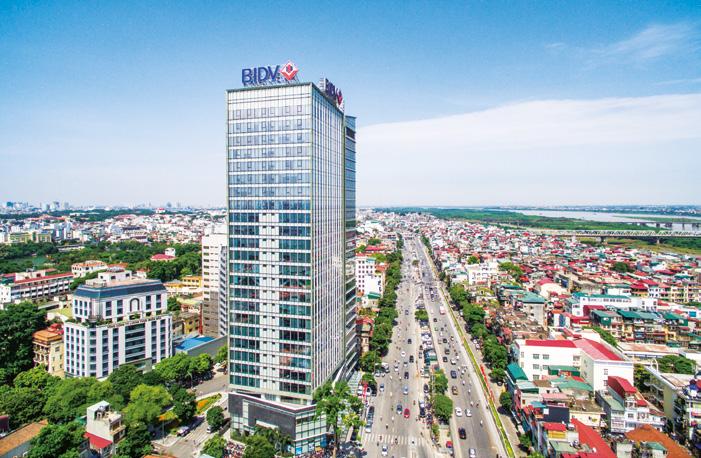
1 minute read
Moody's affirms credit ratings of BIDV
An Tuan
The global rating agency Moody’s recently announced the ratings of BIDV. According to Moody’s release, BIDV's long-term local and foreigncurrency deposit and longterm issuer ratings were maintained.
Advertisement
Moody's assessed that the bank’s capitalisation is strengthened following the external raise in 2019, as well as steady improvements in asset quality following the resolution of legacy problem assets and write off of VAMC bonds. Funding is a key strength for BIDV as the bank's deposit base is supported by its extensive branch network and strong relationships with large Vietnamese corporates.
BIDV's long-term local and foreigncurrency deposit and long-term issuer ratings were maintained and were the highest ratings among Vietnamese banks. The bank received the following ratings: Long term Bank Deposits - Local/Foreign currency: Ba3/B1; Local and Foreign currency Long term Issuer Rating: Ba3.
As of 31 March 2020, BIDV’s total assets reached VND1.45 quadrillion
BIDV headquarters in Hanoi (USD63 billion), resulting in it maintaining the leading position among Vietnamese commercial banks. The bank has developed an extensive network, covering 63 provinces and cities nationwide, with 189 domestic branches, a branch in Myanmar and 871 transaction offices.
2020 marks the 15th consecutive year that BIDV has been reviewed by Moody’s. The bank is pioneering in this regard - confirming its commitment to financial transparency as well as compliance with international standards.
In a newly released report, Moody’s said that the challenging economic and credit conditions stemming from Covid-19 will weigh on ASEAN banks' asset quality and profitability.
Moody's expects asset quality and profitability will deteriorate from good levels in 2019 across most banking systems, with Singapore, Malaysia and the Philippines having the best asset quality with nonperforming loans below 2 percent. And while government support measures will offset some of the pressure on banks, they will not fully eliminate the negative impact.
Despite the challenging outlook, the majority of banks are adequately capitalised, and Moody's expects their funding and liquidity will remain sound and stable in 2020-21. For instance, regulators in India, Thailand and Vietnam have restricted bank dividends, a credit positive for banks, while the largest banks will continue to benefit from deposit inflows as they are seen as safe-havens in times of stress.










